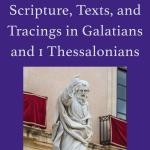Does Jesus Christ speak about his Second Coming in Matthew 10:23? Here, when sending out his disciples to proclaim that the kingdom of God is near, he says, “But when they persecution you in this city, flee to the other. For truly I say to you, you will not finish the cities of Israel until the Son of Man comes.”
This seems to suggest that the disciples will not even be able to preach to all the towns of Israel before Jesus’s Second Coming, when the Son of Man comes with glory and in the clouds of heaven (Matthew 24:29–31, 36–44; cf. 13:41–43; 16:27; 25:31). In this same context Jesus predicts that the disciples will be persecuted, but those individuals who endure to the end will be saved (10:16–25). These same words he repeats again in Matt 24:13, and this is in the Olivet Discourse. The context explicitly refers to Christ’s Second Coming.
If referring to his Second Coming, this in turn would seem to suggest disciples like Peter, James, Andrew, and John might
still be alive at this event. It would seem to take place in a matter of weeks, months, or perhaps years, but not many centuries. If associated with prediction of the temple’s destruction in Matthew 24, then the terminus ad quem would seem to be 70 CE when the Romans destroyed Jerusalem’s temple.
But is this really the best interpretation of Matthew 10:23?
Understanding Matt 10:23
We should point out that the term, “Son of Man,” which Jesus uses here, seems to originate from Daniel 7:13. This verse may have implications related to the Parousia (appearing of Christ) in that this figure comes with the clouds of heaven and the timing relates to final judgment.
Indeed, Jesus’s self-designation, “Son of Man,” suggests an apocalyptic figure whom God gives authority regarding final judgement. This seems to be how Matthew understands the designation (cf. Matt 25:31–46; 26:63–64). When the Son of Man comes, he will render to everyone according as their deeds deserve (Matt 16:27).
We thus confirm that Matthew 10:23 refers to, or at least insinuates, the Second Coming. The bigger question now is determining when this will take place. Did it happen in the first century?
Biblical scholar Dale Allison suggests differently: “our evangelist nowhere informs us that the apostles finished their work in Israel. Indeed, while the missionaries are commanded to go out (10:5–6), they are never said to return (contrast Mk 6:30; Lk 10:17). This striking circumstance is a clue to the reader. The mission to Israel, which began in the pre-Easter period, has never concluded… It continues—which is why the command to go to ‘all nations’ (28:19) includes Israel. Hence the application of 10:23 to the parousia could not, from the Matthean perspective, result in an unfulfilled prophecy.” (W. D. Davies and Dale C. Allison Jr., A Critical and Exegetical Commentary on the Gospel according to Saint Matthew, ICC, 2:190.
Apart from this mission as ongoing, we add that the Son of Man’s coming results in final judgment (see above). Final judgment neither happened at 70 CE nor during the lifetime of the original disciples. The prediction in Matthew 10:23, then, must have an eschatological remainder that still needs fulfillment.
What is it that Remains Unfinished in Matthew 10:23?
Again we read Matthew 10:23: “But when they persecution you in this city, flee to the other. For truly I say to you, you will not finish the cities of Israel until the Son of Man comes.” What is it exactly that the disciples “will not finish” in this verse?
John Nolland rightly suggests there is an ellipsis here: “What is missing could either pick up on the mission task (‘finished proclaiming the good news to the towns’) or on the experience of persecution (‘finished finding temporary refuge in the towns’)” (John Nolland, The Gospel of Matthew NIGNT,427).
I am not sure that we need to choose between these two options; perhaps both are meant. Jesus expected that the mission task to Israel would continue to the very end of the age, up to his Second Coming. Also, it likely means the disciples will continue to be persecuted, to the very end.
This passage, in any case, assures us of two things:
1) Israel will survive until the Second Coming
2) Christ’s followers will likewise survive, despite persecution, until the Second Coming. And they are to continue being witnesses to others, including Israel.
This view dovetails nicely with Paul’s words in Romans 11 where the apostle expects both Israel and the nations to survive and be saved until the Parousia and end of the age.














